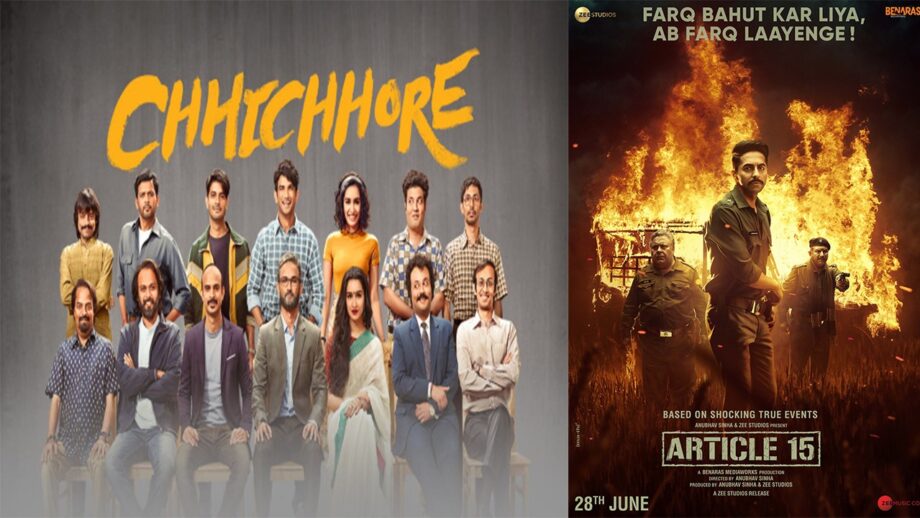Many in the film industry feel Anubhav Sinha has paid his price for being a vocal opponent of Government policies. His brilliant political drama Article 15 from 2019, hands-down the finest film of that year, has been overlooked in the National awards in favour of Nitesh Tiwari’s Chhichhore a relatively tame look at student life .
While no doubt the sympathy vote for Sushant Singh Rajput’s tragic demise must have played an important part in tilting the scales in favour of Chhichhore, the qualitative difference between the two films is so high it couldn’t have been a close shave between the two films. Not by a long shot.
I tried getting in touch with jury head N Chandra (who hasn’t made a film in 12 years) but he chose not to respond. Anubhav Sinha brushed it off with a laugh. But a close friend of Anubhav spoke, “Obviously the criteria was something other than merit. Run through the list of winners, and you’ll know what I mean.Article 15 was undoubtedly the best film of 2019 not just in Hindi but in any Indian language. To not honor it is like giving the best music award to a film called Beimaan during the year of Pakeezah.This actually happened with the Filmfare awards in 1972.”
In one word, Article 15 is spellbinding. It is everything that cinema was always meant to be. Thought-provoking, questioning, disturbing and ultimately cathartic because the cop-hero (played with a simmering intensity by Ayushmann Khurrana) succeeds in getting justice for the wronged.
I must say it is hard to believe the level of political credibility and social conscientiousness Anubhav Sinha’s cinema has acquired after Mulk. Article 15 goes even further than Mulk in search of the truth that lies underneath the veneer of fairness and justice for all.
Sinha’s stunning film says a lot of things we don’t really want to hear about social discrimination in the cow belt areas. Article 15 takes us to a dusty little town in Uttar Pradesh where a sophisticated liberal cop (Khurrana) joins duty and immediately stumbles onto a horrific caste crime whereby two girls are gang-raped and hung from a tree. A third girl is missing.
Sinha imparts to the search for the girl a ‘thriller’ element that in no way over-dramatizes the film’s incessantly grim mood. The director has no songs even in the background because there is nothing to sing about. Not now. Not here. The film has an exceptionally astute sense of pitch and tone. Though the background score is a wee flashy, Anubhav Sinha never over-punctuates his drama. He is not afraid to let the world he recreates glisten with the sweat of inhuman conduct. The actors are all so clued into the director’s kingdom of the damned that they blissfully slip into their roles with no apprehension of tripping over the abyss of self-conscious authenticity.
Article 15 is a film that must be seen by every Indian. Not because it tells us something new. But because what it tells us ought to become irrelevant to our society by now. But oppression, like the films on oppression, has a knack of coming back when we feel it is gone.
At one point the hero confesses he needs to “un mess” the mess created by social discrimination. It is a mean savage world out there for women and men of meager income. That Anubhav Sinha takes on the onus of splitting wide open the debate between the haves and have-nots is no small achievement. The director deserves a standing ovation for putting the cinema of social awakening back on screen without any self-congratulation.
The views and opinions expressed in this article are solely those of the writer and not necessarily those of IWMBuzz. IWMBuzz does not guarantee the accuracy or reliability of the information provided herein.


